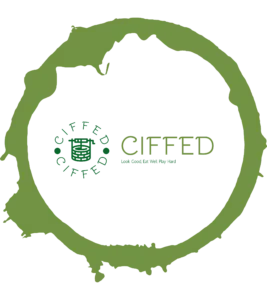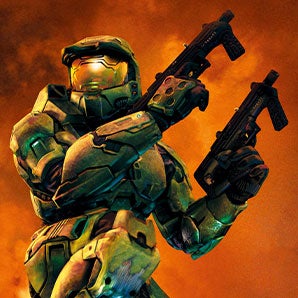Ryan McCaffrey
Curated From www.ign.com Check Them Out For More Content.

If I could time-travel back to any gaming moment, it would be the release of Halo 2 back on November 9, 2004. I have never in my entire life, both personally and professionally, experienced such hype and anticipation in the run-up to a major game release – and then somehow also seen that game actually live up to all of it. But Halo 2 did! It was the long-awaited (and delayed) sequel to the very reason the Xbox established itself in the console space at all, and thus it carried the weight of the entire Xbox world on its shoulders. If you were in or around the Xbox community in 2004, you no doubt remember it. I was lucky enough to cover Halo 2 for Official Xbox Magazine before, during, and after its release, and so I thought I’d take this special anniversary moment to share a few behind-the-scenes memories from what is, to me, the single greatest Xbox game ever.
Covering Halo 2 Before Release
The first time I saw Halo 2 running – sort of – was its then-jaw-dropping and now infamous E3 2003 behind-closed-doors single-player campaign demo. I say “sort of” because the demo Bungie showed never made it into the final game. But it was representative of what we could expect from the sequel, including dual wielding weapons and boarding (read: hijacking) vehicles. They played it live in the room for us, and I went back and saw the demo a few times during that E3 week. Visually, it was stunning for the time. And the aforementioned pair of new gameplay mechanics seemed delectable. Like most who saw it, I couldn’t wait to play it…
…But wait I would for an entire year more. Halo 2 made its playable debut at E3 2004, with its November 9, 2004 release date literally written in ink. While not on the show floor, media members with appointments could play a round of single-flag CTF on the Zanzibar map behind closed doors. I remember a couple of things: first, I was floored by how it looked and felt the first time I put my hands-on it. Boarding an enemy vehicle was an absolute thrill, and the gameplay was so much more refined than what we’d spent every single day at 5pm playing at OXM with Halo: Combat Evolved.
Just this week, Halo 2 lead multiplayer designer (and architect of the groundbreaking “virtual couch” online matchmaking system I’ll talk more about in a bit) Max Hoberman told me this little anecdote about Zanzibar: “We planned this and executed on it in record time in preparation for E3, when we learned that we were going to have to carry the show, and we didn’t have anything we felt was impressive enough.” Mission accomplished, Max.
Needless to say, I politely begged the Microsoft PR team to sneak me in for a few more sessions throughout E3, and I gladly gobbled up every second of hands-on time with Halo 2 that I could. I was hooked.
Reviewing Halo 2
By virtue of the long lead times that monthly magazines have (not to mention day-one patches not really being a normal thing back then), I found myself at Bungie in late September of 2004 to review Halo 2 for Official Xbox Magazine, alongside my editor-in-chief, Rob Smith. Rob pulled rank and actually wrote the review (I’d have done the same in his position), but I got to come along for the ride. The Bungie team gave us our own tiny office – it was more of a storage room, really – where they set up two Xboxes and two TVs.
We were there for three days, with the first two being dedicated to the campaign. Obviously that meant we got to experience the play-as-the-Arbiter surprise before anyone else did – and couldn’t talk about it for weeks! I ended up finishing the campaign before Rob did, and, I kid you not, I thought the credits rolling was a bug. Surely the last level was supposed to have started instead! It’s a funny story now, but I almost embarrassed the heck out of myself by telling Bungie I’d hit a bug. Thankfully, I didn’t, and of course we later learned that the final level was cut because the development team ran out of time. Instead, three years later Halo 3 would pick up where Halo 2’s monumental cliffhanger left off.
The multiplayer sessions were simply a blast. Getting to rip through every one of the now-classic multiplayer maps – a number of them which hadn’t been revealed at that point – was an absolute treat. In fact, one of the then-unknown maps was Coagulation, a remake of what was arguably Halo 1’s most famous/popular battleground, Blood Gulch. Rob and I lobbied Bungie president Pete Parsons to let us talk about Coagulation in the OXM review, which was going to reach subscribers before the game came out. We compromised: we could include it, but it would be in a sealed fold-out page that you had to physically cut to access. Naturally, we assumed everyone that picked up the magazine did just that.
At the end of the visit, Rob and I deliberated in his hotel room. We were both miffed by the campaign’s sudden stop, but nevertheless strongly felt that it deserved the highest score OXM had ever given: 9.7 out of 10. It beat out the previous top score of 9.6, given to both Halo: Combat Evolved and the original Splinter Cell.
Halo 2 Is Released
In the ultimate first-world problem, the weeks between spending three days with Halo 2 at Bungie and the final release of Bungie’s glorious sequel were agonizing. Gaming-wise, all I could think about was playing it again. And when November 9 finally came, the OXM crew and I played every. Single. Night. This is not an exaggeration. Whether it was matchmaking, private matches, or a mix of the two, Halo 2’s sublime Xbox Live virtual couch system was the foundation for thousands of hours of fun – back before live service games were monsters that demanded thousands of hours of your time.
When the Halo 2 Multiplayer Map Packs were released, it only extended the fun for many more months. Not only that, every map was – this is not an exaggeration – awesome. There were no duds in the bunch. Bungie was simply at the peak of its powers with Halo 2, and to this day you can name a Halo 2 multiplayer map and I can describe it in great detail. This week, I asked Halo 2 multiplayer lead Max Hoberman (now the head of veteran developer Certain Affinity) to rank all 12 of the maps that shipped with Halo 2. He graciously did so – with a twist – telling me, “Here’s a ranking of my favorites, specifically from when we were in development. This is how I remember liking them, 20 years ago.” And he left notes on each:
12) Foundation. “We remade Thunderdome, a multiplayer level from Marathon, and added it as an Easter egg, unlockable. I wish we’d remade Mars Needs Women instead – that was my favorite from Marathon.”
11) Colossus. “Gravity lifts are fun, but this map never really did much for me. I honestly can’t think of a time I had a blast playing it during development. Apparently it was also superbounce crazy after we shipped, who knew?”
10) Headlong. “We slammed this in late, after the success of Zanzibar at E3. We felt we needed more asymmetrical single flag CTF maps that supported vehicles and large teams. and had a big dynamic element (the crane). It really needed more time in paper design, and more tuning, than we were able to give it, so it was never my favorite.”
9) Battle Creek. “I felt we had to remake the iconic Beaver Creek from Halo. Then working to improve it was quite a challenge – removing ladders, and adding teleporters behind the bases. I think it worked out ok, but honestly, I was already tired of it by the time we got it playable during development.”
8) Burial Mounds. “We really wanted a map that highlighted the ATV/Mongoose, before we found out it was cut, and this was supposed to be that map. We tried to salvage it, and it had a few moments of fun on base defense games due to its extreme asymmetry, but it would have been much better if we’d designed it for that. As it was, it was nothing but untapped potential.”
7) Waterworks. “I liked the ambition on this map, but I think the simplicity of the bases and the lack of cover out in the open really hurt it. It’s an easy candidate for improvement, in my honest opinion. If only we’d had more time and resources! We were a tiny multiplayer content team (just me and [Halo 2 multiplayer designer Chris] Carney originally, then [Halo 2 multiplayer designer Steve] Cotton joined us halfway through).”
6) Ivory Tower. “This map was a mosh pit of sorts, where we tested out a lot of Assault games in particular, and that’s what I recall most. But we had fun Slayer and Oddball and other games on it too. Plus I named it after our nickname for Marty’s audio space/office, which was a constant sore point for him, so it got extra points.”
5) Midship. “I designed this map for 2v2 CTF games, Carney helped improve it massively (Covey curvey!), and it took on a life of its own, especially in competitive circles. Of course it was at its best when it had more players on it than it was originally targeting.”
4) Ascension. “A map that blends tight quarters combat with distance sniping and Banshees? Why not. This was definitely a unique map, and while it had some issues, I have very fond memories of playtests on it during development. Plus [Halo 2 narrative lead Joseph] Staten and [Halo 2 animator John] Butkus went head to head on it with snipers every single day, on the kiosk, for at least a year. They were clearly having fun.”
3) Coagulation. “Yes, this is a remake of Blood Gulch, but we remade it for a reason. The original was simply the most iconic big open vehicle sandbox, mildly symmetrical and with two bases to boot, for big team CTF battles. This complemented our smaller, tighter, no vehicle maps perfectly. Plus I think we did a good job of staying true to the original, while still improving it.”
2) Zanzibar. “We planned this and executed on it in record time in preparation for E3, when we learned that we were going to have to carry the show, and we didn’t have anything we felt was impressive enough. I doubled down on single flag CTF, with this dedicated map that supports both close quarters combat and vehicles, and many of my fondest memories in Halo 2 playtests were on it.”
1) Lockout. “Our first and our best. The undisputed king. We played this continuously throughout development, and I never got tired of it. Ever.”
Ryan McCaffrey is IGN’s executive editor of previews and host of both IGN’s weekly Xbox show, Podcast Unlocked. Swords-only no-radar matches on Lockout are his favorite. Talk Halo 2 with him on Twitter at @DMC_Ryan.

